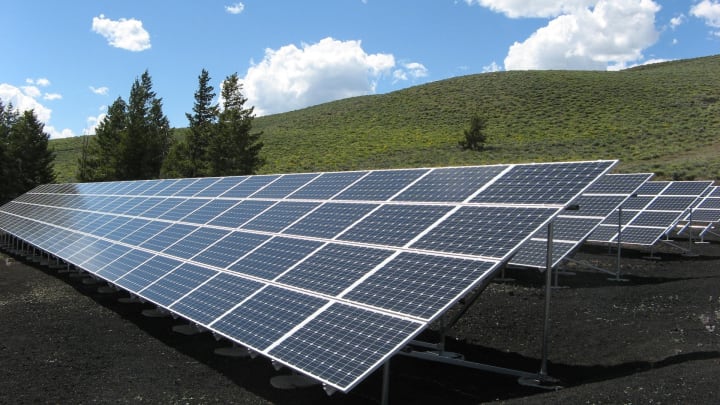Exploring The Benefits of Biogas
A Comprehensive Guide To Biogas Production, Utilization, And Market Trends

Biogas is a renewable energy source that is produced by the breakdown of organic matter such as food waste, agricultural waste, and sewage sludge in anaerobic (oxygen-free) conditions. The process of biogas production is known as anaerobic digestion and involves microorganisms breaking down organic matter into simpler compounds such as methane (CH4) and carbon dioxide (CO2). This mixture of gases is commonly referred to as biogas.
Biogas has several advantages as an energy source. First, it is renewable and sustainable, as organic matter is a constantly renewing resource. Second, biogas production reduces the amount of waste that would otherwise be sent to landfills, where it would decompose and release methane, a potent greenhouse gas. Third, biogas production can also reduce greenhouse gas emissions from other sources, as it can be used as a substitute for fossil fuels.
The production of biogas is a simple process that can be carried out in small, community-scale facilities or large, industrial-scale facilities. In either case, the process begins with the collection of organic matter, which is then loaded into an anaerobic digester. The digester is typically a sealed, airtight vessel that is heated to maintain a temperature suitable for the microorganisms that break down the organic matter.

Once the organic matter has been loaded into the digester, it is mixed with water and bacteria. The bacteria break down the organic matter into simpler compounds, releasing biogas in the process. The biogas is then collected and stored, typically in a gas holder. From there, it can be used for heating, electricity generation, or as a fuel for vehicles.
There are several types of anaerobic digesters, including continuous-flow and batch systems. Continuous-flow systems are typically used in large-scale facilities and involve a constant flow of organic matter and water into the digester. Batch systems, on the other hand, involve loading a set amount of organic matter into the digester, allowing it to break down, and then removing the resulting biogas and solid waste.

The quality of biogas produced can vary depending on the type of organic matter used, the conditions in the anaerobic digester, and the type of anaerobic digester used. High-quality biogas is typically composed of 60-70% methane, with the remainder being made up of carbon dioxide and other trace gases.

Biogas can be used for a variety of purposes, including electricity generation, heating, and as fuel for vehicles. When used for electricity generation, biogas is typically burned in a combined heat and power (CHP) plant, which uses the heat generated by the combustion of biogas to produce electricity. Biogas can also be used for heating, either by burning it directly in boilers or by using it to generate steam that is then used to heat buildings.
In addition to its use as a source of energy, biogas production also has environmental benefits. By reducing the amount of organic matter sent to landfills, biogas production reduces the amount of methane that would otherwise be released into the atmosphere. In addition, biogas production can also help to reduce greenhouse gas emissions from other sources, as it can be used as a substitute for fossil fuels such as coal and natural gas.

Biogas production is an environmentally-friendly and sustainable energy source that can play a key role in the transition to a low-carbon energy system. As such, it is a technology that is attracting increasing interest and investment around the world.
In conclusion, biogas is a renewable energy source that is produced
About the Creator
Kingsley Osevwe
I'm a multi-faceted entrepreneur, coder & writer, and sought-after business coach with expertise in internet marketing, farming & passive income streams. I've built websites for businesses & trained many to earn online.
Enjoyed the story? Support the Creator.
Subscribe for free to receive all their stories in your feed. You could also pledge your support or give them a one-off tip, letting them know you appreciate their work.






Comments
There are no comments for this story
Be the first to respond and start the conversation.